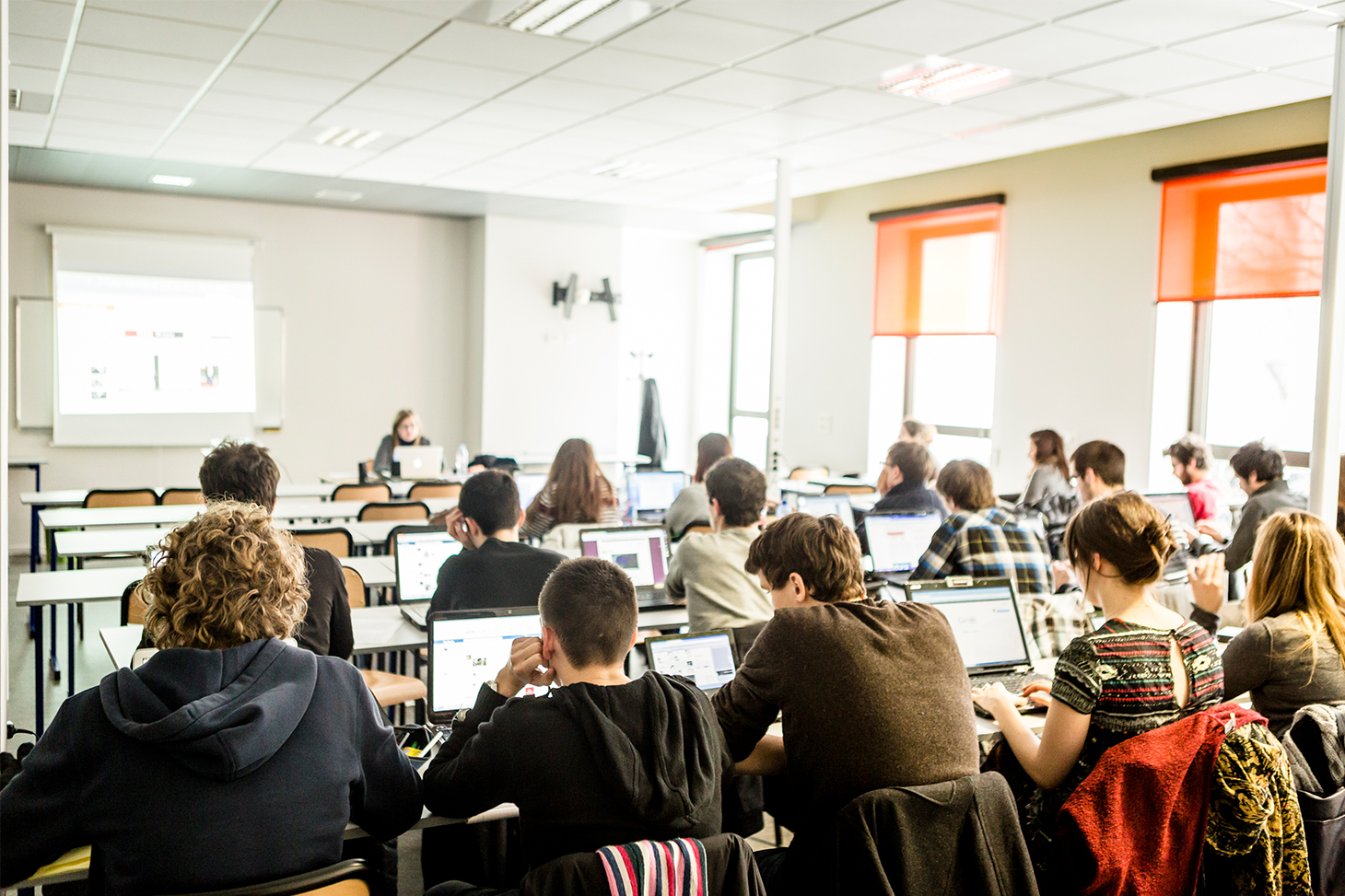The aim of this training program is to highlight the processes and issues involved in communicational phenomena in research fields as diverse as the media, information and communication technologies, cultural and heritage practices, cultural industries, organizations and information systems.
cultural and heritage practices, cultural industries, organizations and information systems. As part of the new training offer, it has undergone several important changes.
"First of all, to make it easier to understand and manage student numbers, its overall structure has been
harmonized and clarified. Previously, the single information-communication course offered a choice of 4 pre-professionalization "modules". From now on, whatever their career path, students enrolled each semester will follow a block of 4 lectures in Information and Communication Sciences, an ETC or equivalent (from which aspiring journalists were previously excluded), English courses adapted to the curriculum, and more applied courses grouped together in the Tools and Practice units. TDs on collaborative work, mentoring schemes and support for the BDE ensure cohesion within the class.
As soon as they apply, students choose one of the 2 courses on offer: the
journalism orientation (20 places) is aimed at students wishing to apply for entrance exams to journalism schools; the
communication orientation (60 places) is more general. The "Methods" taught differ according to the course chosen: The Journalism-oriented "Methods" course includes 6 practical sessions to prepare students for the competitive entrance exam to journalism schools (this course is no longer open to students outside the L3 information-communication stream). In the Communication-oriented Methods course, students are trained in introductory research, monitoring practices, data processing and visualization, multi-media writing and oral expression.
Until now, a large proportion of our L3 information-communication students have been graduates of DUTs in the same field, wishing to go on to a Master's degree. From the start of the 2023 academic year, these students will be pursuing a 3-year Bachelor's degree at the IUT. Our license can now
fully open its capacity to other profiles French or international, from BTS, CPGE, but above all from a variety of university courses, including the L1-L2 of the UFR LLASIC and the DU LLFC for Chinese students. Indeed, the richness of their previous university training seems to us to be a real asset in training future citizens, journalists and communicators endowed with thinking and writing skills, a good general culture and curiosity about the world around them.
With this in mind, and in parallel with the redesign of the L3 program, partnerships have also been forged with the Sociology, SHA, Philosophy and History departments to welcome their L1-L2 students in the information-communication minor, and a communications effort has been launched to publicize the bachelor's level offering (which includes 10 ETCs offered by the department, in addition to the minor and L3 programs).
This expected renewal of the public requires the consolidation of practical training in L3; this was also an expectation expressed by former students. With this in mind, the entire graduating class now takes workshops in graphic design, video and website creation, as well as a course on communications and media law. In addition
tutored projects have been introduced and time freed up for an optional internship.
Finally, the annual teaching calendar has been redesigned to better prepare students for Master's degree applications. The 1st semester, which is fairly intensive, is geared towards familiarizing students with the different professional fields associated with Master's programs (organizational communication, cultural and scientific mediation, cultural industries, political and institutional communication), as well as acquiring or consolidating operational skills. The fact that the January semester is a common one means that everyone can gain experience in the field of their choice, and put the skills they have acquired to good use in their applications. The remainder of the second semester completes and deepens the learning process, while developing fluency in oral and written communication. It is of course possible for students to carry out a complementary internship from mid-May onwards.
We hope that this ambitious new model can be implemented under respectable conditions, and that the course will thus be able to maintain its appeal."
Joëlle Bourgin, head of the L3 information-communication course


